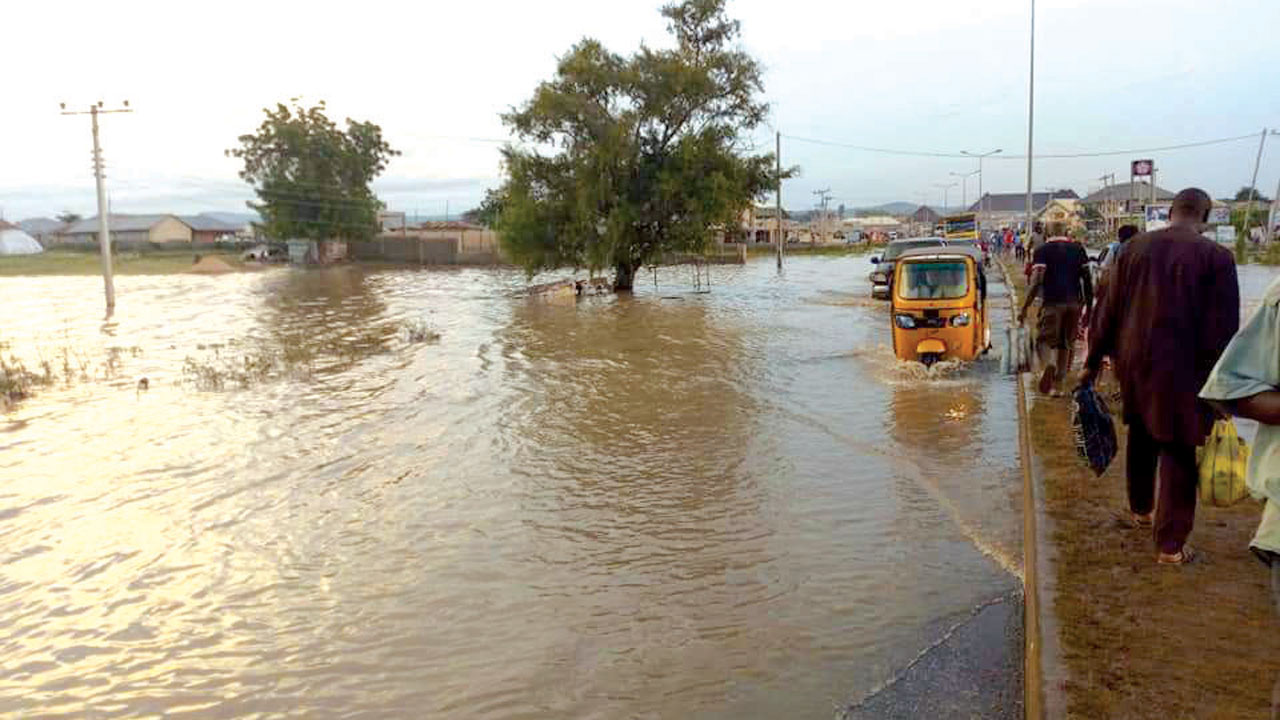
Victims of this year’s flooding in Kogi State are asking the National Emergency Management Agency (NEMA) and the Federal Government to ensure relief materials meant for those affected are taken to the Internally Displaced Persons (IDPs) camps and distributed to the direct beneficiaries.
A victim, Salihu Idris, taking refuge at the Kotokarfe IDPs camp, said when there are middlemen in the distribution of relief materials, most of them end up not reaching the victims.
He accused government officials of sharp practises, saying when Governor Yahaya Bello visited last week, he made a donation of N3million, but only N100, 000 reach them, adding that when it was shared, some households in the camp ended up in getting only N500.
Another victim, Ismail Salihu, warned government officials to fear God and stop diverting what is meant for helpless victims of the flood, just as Idris Abdulmumuni from Akpaku village, lamented: “The flood destroyed my rice farms. I had 10 hectares. I also lost my maize, potatoes and okra farms to the flood. I couldn’t harvest anything.
“Since we were displaced and we came to this camp on September 7, we have been suffering. The local government is supposed to help us with some things, but they are not doing it.”
He bemoaned lack of nets that would have helped them to catch fish, adding: “We don’t have money to buy nets, so that we will be able to enter the water to at least catch that we can eat at this critical point.
“The livestock we were rearing, such as cows, goats, sheep and fowls were all destroyed.”
Abdulmumuni said the flood took them unawares and as such, they could not evacuate those livestock, more so as they had no money to hire engine boats to evacuate them, noting: “I only managed to escape with my family members using my own small wooden boat. For now, no help has come to us from either the state or federal government.
“The issue is that sometimes when they release relief materials for victims affected by flood, government officials in charge often divert them.
“We want government to help us with foodstuffs, clinic and drugs, so that we can feed and also have access to treatment. Lack of food and drugs will worsen our situation in the camp.”
He continued: “If nothing is done to assist the victims, it can lead to many people developing hypertension due to excessive thinking. As I am talking to you now, I have not eaten anything today, as the food we brought from home has been exhausted.
“We need government to help us with bags of sachet water. We are forced to be drinking water from the flooded river, since there is no other source of potable water.”
He said soldier providing security in the camp usually assist them with some bags of sachet water, which is not enough for the large population in the camp.
“You can imagine that soldiers are the ones showing us human kindness with bags of water between 10 to 20 bags every day. That is what we have been managing. We are praying that God will touch the government and other philanthropic organisations to come to our aid.”
Another victim, Abubakar Musa, who said he has two wives and nine children, disclosed that the flood destroyed all their crops and farmlands.
He stated: “My rice, maize and cassava farms were destroyed. It is the farm that has been our means of livelihood. The little food we managed to bring to the camp has been exhausted and we are now left with nothing. There is hunger in the camp.
“We don’t have nets, mattresses and blankets. We also have challenges with place of convenience and where to take our bath. Our women cannot take their baths in the afternoon except in the night.”
A community leader in Akpaku, Idris Ahmadu, said since the flood displaced them from their ancestral home, life has not been easy for them in the camp.
“We are suffering a lot in this camp. The water destroyed our crops and submerged our farmlands. We don’t have food at the camp. There is a portion of land our emir allocated to us, which we want the government to assist us to build structures, so that we can relocate from the flood plains.
“Our local government administrator advised that we should not drink water from the flooded river, but we had no option than to drink the water, since we don’t have any means of getting potable water.
“It is only the soldiers that have been helping us with some bags of sachet water. Our children are falling sick,” he lamented.
Fatima Abdullahi said women in the camp were going through lots of challenges, especially in terms of feeding of their children.
She explained: “Our husbands are farmers and fishermen, but the flood has affected their occupation.”
For Maimuna Salihu, how to survive with her children is the biggest challenge, adding: “Many of our children are falling sick and we don’t have money to treat them.”
[ad unit=2]



